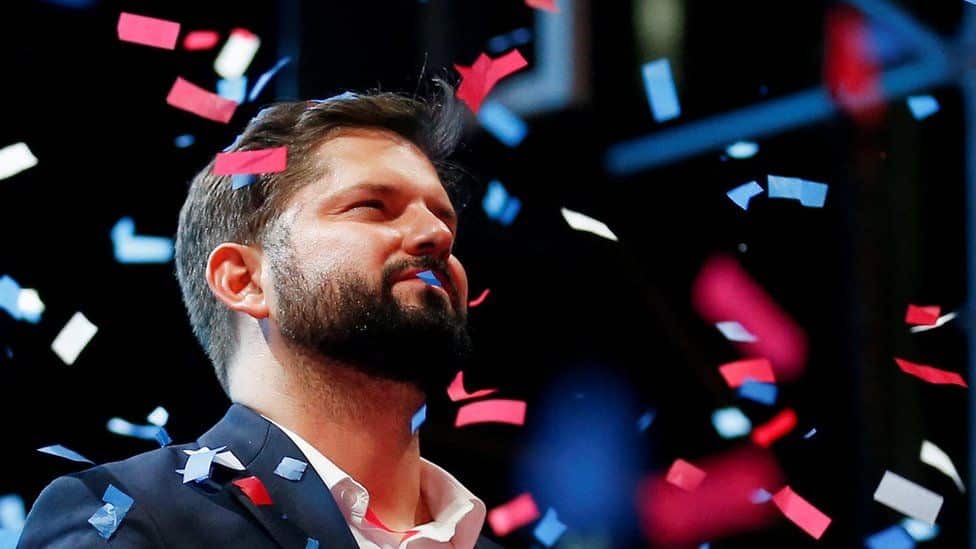On Tuesday, three years after the start of the October 2019 rebellion that shook not only Chile but all of South America, President Gabriel Boric delivered a speech that attacked the participants of the revolt. The speech represents a continuation of the policies of his Apruebo Dignidad (I Approve Dignity) coalition that criminalize the protesters and guarantee the impunity of the Carabineros (the Chilean federal police) after the massive human rights violations these forces carried out.
In his speech, Boric stated that, “The social uprising was fertile ground for the expansion of destructive violent behavior, which has left victims and aftereffects. We must say this unequivocally no matter our political leanings.” He also points out that “the violence turned against the very causes of the uprising by producing a growing wave of rejection in society”.
These statements could easily have come from the right wing but today are voiced by the government of the Frente Amplio (the Broad Front) and Communist Party, and the resuscitated center-left Concertación coalition parties.
Boric and his coalition, which claims to be progressive, no longer disguise their contempt for the October revolt, nor do they even argue that it was a case of violence on both sides. Instead, three years after the rebellion, Boric is repeating the same arguments used by the right wing, criminalizing the demonstrators.
“This type of violence is not innocent; it causes harm, encourages hatred, promotes criminality and ends up promoting a return to an anti-democratic past”, Boric noted, trying to blame the protestors for the repressive policies of the State, which he now leads and which is carrying out a violent campaign against migrants and the indigenous Mapuche people.
While proclaiming himself as part of the “Left,” he puts forward what’s clearly a right-wing policy: “We on the Left denounce more categorically than anyone these behaviors. We must confront them without hesitation, denounce them and punish them”.
“Social protest cannot be synonymous with violence. It cannot excuse or justify violence, because violence goes against its principles and objectives and runs counter to the will of the majority,” insisted Boric. Conspicuously absent from his statement was any reference to former President Sebastian Piñera or his responsibility for the repression of the October revolt.
Faced with popular discontent, Boric cynically declared that “we cannot build a fairer country by burning the buses in which people travel, or leaving people without traffic lights to cross the street, or business owners and workers without their source of income. It is simply not acceptable.”
He continued: “neither is it acceptable to attack police officers, who are, after all, State officials who are performing a service entrusted to them by the democratic system,” as if the police were just like healthcare workers or teachers, and not the armed wing of the State, created precisely to quell popular discontent.
As the icing on the cake, the president declared that “human rights violations, such as injuring eyes, sexual aggressions, even deaths, are not acceptable. At the same time, however, the Carabineros have all our support to fight crime and ensure public order within the framework of the law …. There is no contradiction between these positions and we will defend both.”
It was another regrettable speech by Boric that demonstrates, once again, that the coalition he heads is now guided by the agenda of the right-wing. In the face of an inflationary and cost-of-living crisis affecting Chile and the entire world, Boric’s government can only offer such programs to protect big business and not the discontent of the great majority, who are now labeled as criminals for taking to the streets in protest.
First published in Spanish on October 18 in La Izquierda Diario.
Translation by Molly Rosenzweig











